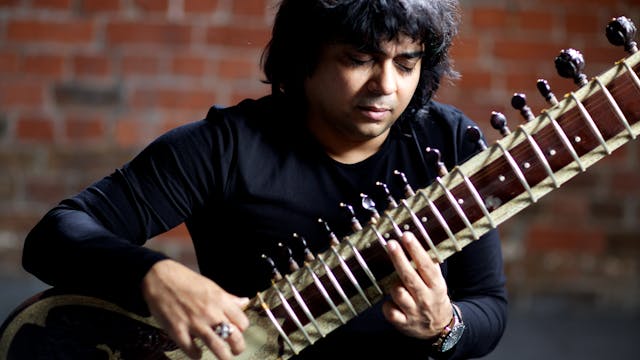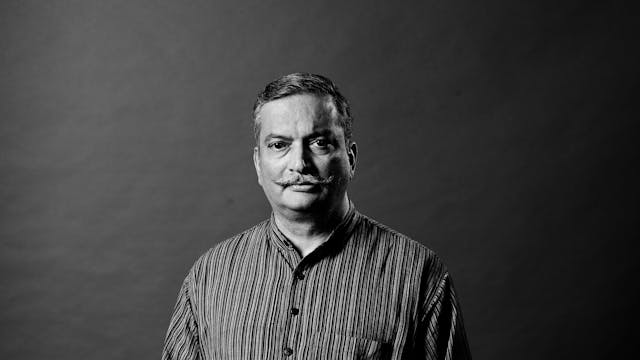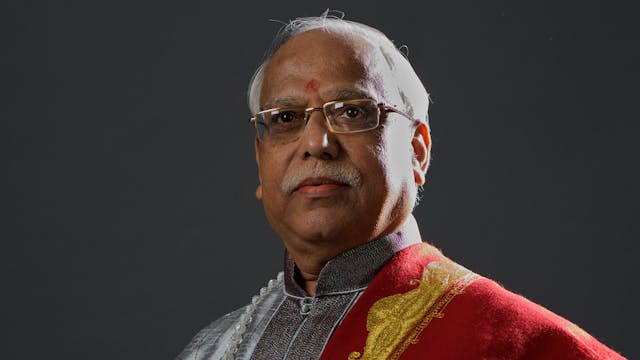Prabha Atre | Interview
Interviews
•
12m
Recorded at Darbar Festival 2014, on 20th September, at the Level 5 Function Room at the Royal Festival Hall, London's Southbank Centre.
Dr. Prabha Atre wanted to study medicine, but the medical school was far away from home. She chose law instead and even learned kathak to fulfill her aspirations of becoming a dancer. But a chance encounter with Indian classical music changed her life forever. “I was destined to become a musician,” says she.
When Dr. Atre was a small girl, her father had appointed a harmonium player to engage his ailing wife with an activity that he thought would distract her from her illness. After a few lessons, she refused to continue any longer. To save himself the embarrassment of discontinuing the teacher abruptly, he instead pushed his daughter to take lessons on the harmonium. Little did he know at that time that this step would unravel the path for his daughter to become one of the greatest Indian classical musicians.
For more than seven decades, Dr. Atre remains one of the most revered, respected and leading vocalists. She was 84 years old when this interview was recorded at the Darbar Festival in 2014. However, the strikingly melodious timbre of her voice defies age with its capability to perform impeccably nuanced, unwavering notes with youthful vigour.
She is articulate, vibrant, full of curiosity and her open-minded approach to learning is an example for every generation. Dr. Atre is an exponent of the Kirana gharana. She has chartered new territories in this introverted style with highly innovative methods of raga elaboration. Dr. Atre has also contributed massively to Indian classical music with a treasure of her own beautiful compositions and erudition.
In this charming and honest conversation, she speaks about her family, her training, her initiation to composing opera and bandishes (compositions sung in Hindustani classical recitals) and her creativity with an uncompromising adherence to tradition.
Up Next in Interviews
-
Niladri Kumar | Interview
Recorded on Darbar Festival 2014, on 19th September, at the Level 5 Function Room of the Royal Festival Hall, at London's Southbank Centre.
Musicians:
- Niladri Kumar (sitar and zitar)
- Soumik Datta (host)Rooted in the rich tradition of the Maihar gharana, Niladri Kumar has learned sitar unde...
-
Pandit Nityanand Haldipur | Interview
Recorded at Darbar Festival 2014, at London's Southbank Centre.
Interviewee:
- Pandit Nityanand HaldipurThe journey of the humble bamboo flute from folk music to Indian classical music is not a very old one. The transformation took place due to the pioneering efforts of Pandit Pannalal Ghosh (...
-
Pandit Vinayak Torvi | Interview
In a lively conversation recorded in 2014, Pandit Torvi gives some age-old insights about the values of Indian music and musicians that still have strong relevance today.
Musicians:
- Pandit Vinayak Torvi (Gwalior and Kirana gharanas)Keen observation is one of the key tools to learning an art ...



